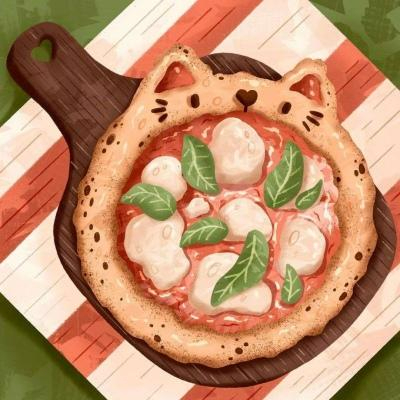
дёҖиҲ¬е°ҶжқҘж—¶зҡ„з”Ёжі•жңүе“Әдәӣпјҹ
2022-09-04 В· дё“жіЁдёәжӮЁеёҰжқҘеҲ«ж ·и§Ҷи§’зҡ„зҫҺйЈҹи§ЈиҜҙ

дёҖгҖҒдёҖиҲ¬е°ҶжқҘж—¶пјҡ
жҰӮеҝөпјҡиЎЁзӨәе°ҶиҰҒеҸ‘з”ҹзҡ„еҠЁдҪңжҲ–еӯҳеңЁзҡ„зҠ¶жҖҒеҸҠжү“з®—гҖҒи®ЎеҲ’жҲ–еҮҶеӨҮеҒҡжҹҗдәӢгҖӮ
ж—¶й—ҙзҠ¶иҜӯпјҡtomorrowпјҢnext day(weekпјҢmonthпјҢyearвҖҰ)пјҢsoonпјҢin a few minutesпјҢbyвҖҰпјҢthe day after tomorrowпјҢetc.
еҹәжң¬з»“жһ„пјҡдё»иҜӯ+am/is/are+going to + doпјӣwill/shall + do.
дәҢгҖҒдёҖиҲ¬зҺ°еңЁж—¶пјҡ
жҰӮеҝөпјҡз»ҸеёёгҖҒеҸҚеӨҚеҸ‘з”ҹзҡ„еҠЁдҪңжҲ–иЎҢдёәжҹҗз§ҚзҠ¶еҶөгҖӮ
ж—¶й—ҙзҠ¶иҜӯпјҡalwaysпјҢusuallyпјҢoftenпјҢsometimesпјҢevery week (dayпјҢyearпјҢmonthвҖҰ)пјҢonce a weekпјҢon SundaysпјҢ
еҹәжң¬з»“жһ„пјҡеҠЁиҜҚ еҺҹеҪў пјҲеҰӮдё»иҜӯдёә第дёүдәәз§°еҚ•ж•°пјҢеҠЁиҜҚдёҠиҰҒж”№дёә第дёүдәәз§°еҚ•ж•°еҪўејҸпјү
дёүгҖҒдёҖиҲ¬иҝҮеҺ»ж—¶
жҰӮеҝөпјҡиҝҮеҺ»жҹҗдёӘж—¶й—ҙйҮҢеҸ‘з”ҹзҡ„еҠЁдҪңжҲ–зҠ¶жҖҒпјӣиҝҮеҺ»д№ жғҜжҖ§гҖҒз»ҸеёёжҖ§зҡ„еҠЁдҪңгҖҒиЎҢдёәгҖӮ
еҹәжң¬з»“жһ„пјҡbeеҠЁиҜҚпјӣиЎҢдёәеҠЁиҜҚзҡ„иҝҮеҺ»ејҸ
еӣӣгҖҒзҺ°еңЁиҝӣиЎҢж—¶
жҰӮеҝөпјҡиЎЁзӨәзҺ°йҳ¶ж®өжҲ–иҜҙиҜқж—¶жӯЈеңЁиҝӣиЎҢзҡ„еҠЁдҪңеҸҠиЎҢдёәгҖӮ
ж—¶й—ҙзҠ¶иҜӯжәҗж…§й—№пјҡnowпјҢat this timeпјҢdaysпјҢetc. look . listen
дә”гҖҒиҝҮеҺ»иҝӣиЎҢж—¶
жҰӮеҝөйӣ№зҪ©пјҡиЎЁзӨәиҝҮеҺ»жҹҗж®өж—¶й—ҙжҲ–жҹҗдёҖж—¶еҲ»жӯЈеңЁеҸ‘з”ҹжҲ–иҝӣиЎҢзҡ„иЎҢдёәжҲ–еҠЁдҪңгҖӮ
ж—¶й—ҙзҠ¶иҜӯпјҡat this time yesterdayпјҢat that timeжҲ–д»Ҙwhenеј•еҜјзҡ„и°“зў§еёҶиҜӯеҠЁиҜҚжҳҜдёҖиҲ¬иҝҮеҺ»ж—¶зҡ„ж—¶й—ҙзҠ¶иҜӯзӯүгҖӮ
еҹәжң¬з»“жһ„ s+was/were+doing
е…ӯгҖҒзҺ°еңЁе®ҢжҲҗж—¶
е®ҢжҲҗж—¶зҡ„иҝҷз§Қз”Ёжі•йҖҡеёёдёҺз”ұsinceжҲ–forеј•еҜјзҡ„ж—¶й—ҙзҠ¶иҜӯиҝһз”ЁгҖӮеҰӮпјҡ
The old man has lived here for more than twenty yearsгҖӮ



